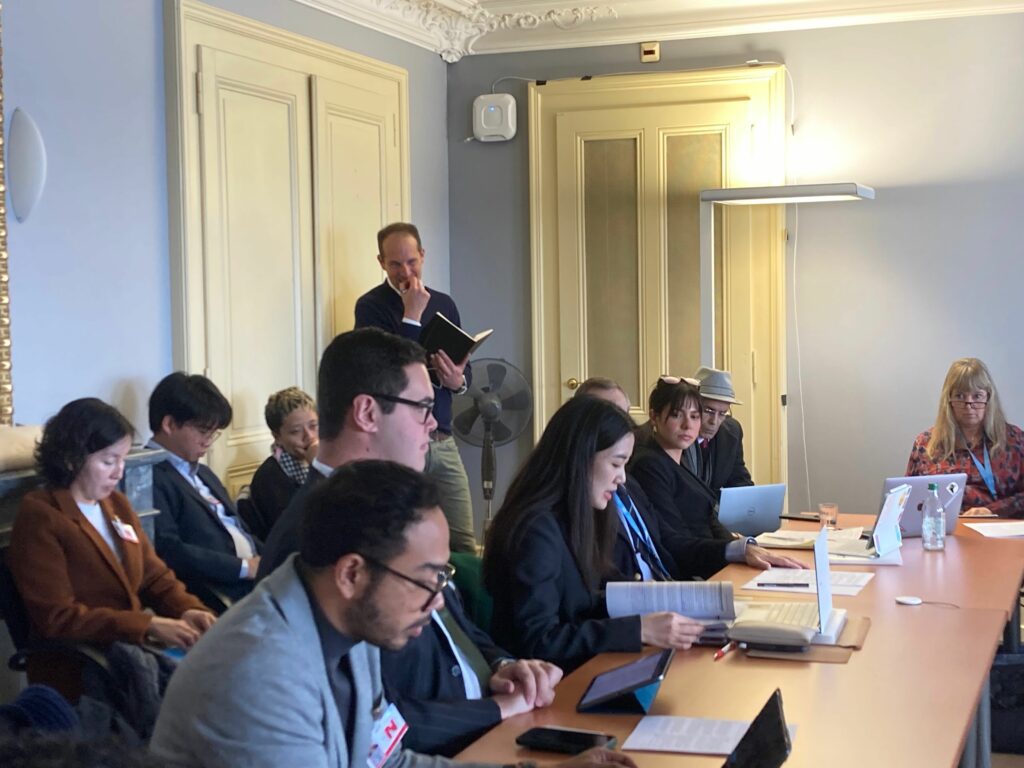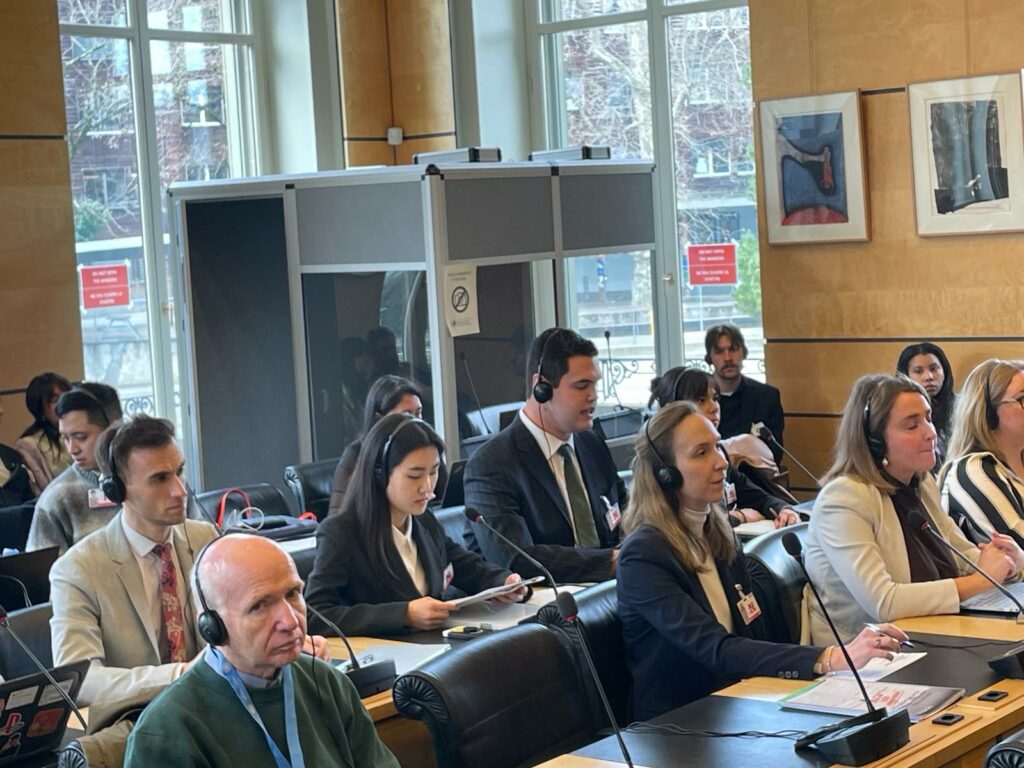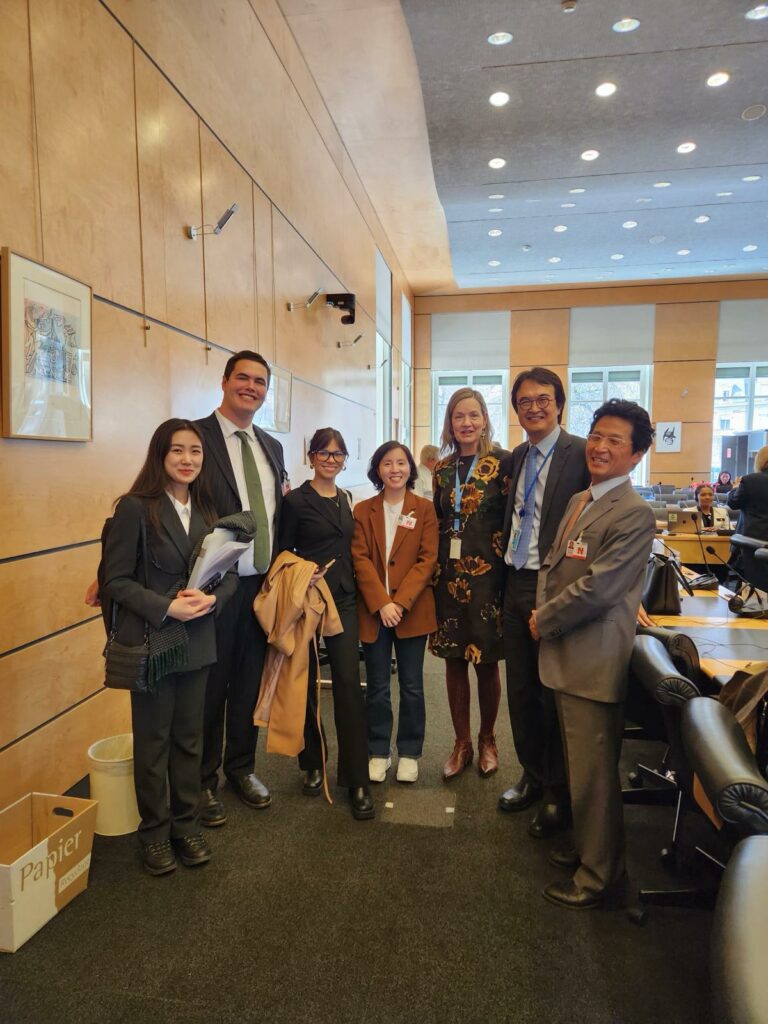On 27 March 2024, the UN Human Rights Committee issued its final recommendations to the Indonesian government after review of the country’s compliance with the International Covenant on Civil and Political Rights, the world’s main human rights treaty, counseling abolition of criminal defamation laws overly protective high government officials and due process for both surveillance and online content takedown.

Open Net, together with Southeast Asian Freedom of Expression Network (SAFENET), Korea University International Human Rights Clinic, and University of California at Irvine International Justice Clinic has lobbied for Indonesian digital rights, starting with the shadow report filed on February 6, 2023 focusing on digital rights, representing and assisting the country’s civil society voice in person at an informal briefing on March 11 and other casual occasions, and speaking at the Formal Briefing (for video, here)on March 11, 2024 followed by the monitoring of the country review on March 11-12. The coalition, after attending the country review on March 11 to March 12 followed up with an additional brief debunking (and otherwise correcting) the Indonesian government’s responses to the Committee member’s questions.

The coalition began with a comprehensive report on digital rights, covering (1) criminalization of defamation, “fake news”, blasphemy, and even “impropriety” under both the 2023 amended Electronic Information and Transactions Act (EIT Law) and the 2022 amended Criminal Code; (2) suppression of online content by the communication ministry’s order under Ministerial Regulation 5 (MR5) covering such broad category as “community anxiety and disturbance in public order”; (3) lack of protection for minorities vulnerable to hate speech; (4) internet shutdowns and website blockings; and (5) warrantless surveillance and surveillance-enablers such as mandatory website registration, on the last of which Open Net has filed an joint amicus brief in a constitutional challenge in 2023.
The coalition was then effective, in response to the Committee members’ request for the most important speech restrictions, in pointing out the criminal defamation laws that persecute people for insulting or criticizing the president and other officials. Also, the coalition boldly requested the Committee to pressure the government to address online hate speech that is actually resulting in physical violence. The coalition also pointed out that the government’s insufficiencies in their response such as an attempt to justify the backward criminalization provision in the EIT law in light of the “modernized” Criminal Code which has not been modernized at all and also an attempt to assure the Committee of existence of an appeals mechanism for content takedown when an appeals mechanism exists only for website operators (Article 20, MR5), but not for the authors of individual postings.

The impact of the coalition’s work was memorialized in the Concluding Observations as follows (underlining the parts emphasized in the coalition ‘s lobbying efforts):
Counter-terrorism measures. . .
(b) Ensure that any restrictions of the right to privacy of individuals suspected of or charged with terrorist acts, such as wiretapping, are subject to judicial review and effective, regular, and independent oversight while guaranteeing access to effective remedies in cases of abuse of authority;. . .
Freedom of expression
32. The Committee regrets the limited information on laws or policies to protect individuals exercising their freedom of speech, including human rights defenders, community leaders, journalists, and civil society representatives. The Committee is concerned about article 240 of the amended Criminal Code and article 27A on criminal defamation under the 2 January 2024 revision of Law No. 11/2008 on Electronic Information and Transactions, which may be used to criminalise insulting the President or public officials. The Committee is also concerned that articles 27(1) on “contents that violate propriety” and 28(3) on “false statements that cause public unrest” of the revised Electronic Information and Transactions Law are overbroad and vague, allowing for judicial intimidation and harassment. The Committee is concerned about reports of internet shutdowns amidst protests and regularly in the context of security operations in Papua. The Committee notes with concern that since the adoption of Ministerial Regulation no. 5/2020 on Private Electronic System Operators, nearly 300,000 webpages have been blocked, of which approximately two thousand were identified as “negative” (arts. 19 and 20).
33. The State party should take the measures necessary to ensure the full enjoyment of the right to freedom of opinion and expression, with reference to General Comment no. 34 (2011) on the freedoms of opinion and expression. In particular, the State party should:
(a) Adopt measures to effectively protect individuals exercising their freedom of expression, including the adoption of legislation to protect human rights defenders and to guarantee their rights, including their right to effective remedies;
(b) Conduct prompt, thorough, and impartial investigations into all reports of harassment, intimidation and reprisals against human rights defenders, ensure that perpetrators are brought to justice, and if convicted, punished with penalties commensurate to the seriousness of the offence, and that defenders are able to carry out their work in a safe and enabling environment;
(c) Revise the legal framework including the Criminal Code and the revised Electronic Information and Transactions Law (EITL) in order to decriminalise defamation of the President or public officials, defining articles 27(1) and 28(3) of the EITL in accordance with the principles of legal certainty, necessity, and proportionality; and ensure that all restrictions on the internet access are non- discriminatory, necessary, and proportionate, as required by article 19 (3) of the Covenant;
(d) Review Ministerial Regulation no. 5/2020 with a view to guarantee transparency, procedural safeguards, access to evidence and the right to appeal to an independent body in line with the Covenant;
(e) Conduct training for judges, prosecutors, lawyers, and law enforcement personnel on the right to freedom of expression including online expression.


0 Comments